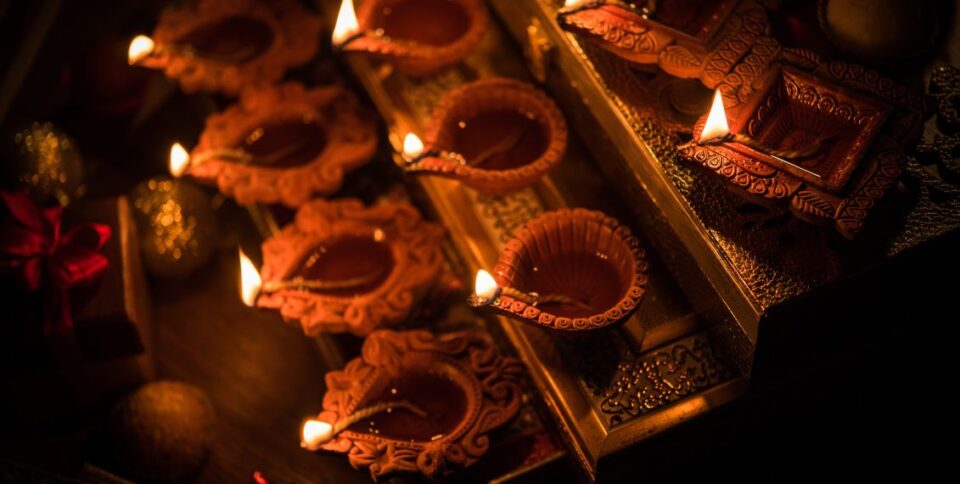Festival of Lights Meets Civic Regulation
Diwali, the festival of lights, is a time of joy and reflection for South Asians across the world — a celebration of the triumph of good over evil. Yet, in the city of Mississauga, Ontario, Canada, the festival recently became a flashpoint between cultural tradition and civic regulation over the use of fireworks.
The controversy began in May this year when the City Council moved to revisit its fireworks policy. Under existing rules, enacted in late 2023, consumer fireworks were prohibited for most of the year but allowed during limited hours on five major holidays — Diwali, Lunar New Year, New Year’s Eve, Canada Day, and Victoria Day. This recognition allowed families to light sparklers and lanterns as symbols of triumph over darkness.
However, citing skyrocketing complaints — from 180 in 2022 to over 600 in 2023 — and enforcement costs exceeding $60,000, the City argued for tighter controls. Officials also pointed to concerns over air, soil, and water pollution, and the safety of pets and wildlife.
Community Pushback and Allegations of Bias
Mississauga’s 800,000-strong Hindu community viewed the move as an affront to religious freedom.
Speaking to SAIN, Pushpita Prasad, media coordinator for the Coalition of Hindus of North America (CoHNA), said:
“The City’s intentions were doubtful. They scheduled the vote on October 2 — Dusshera day — when they knew our community would be busy celebrating. Yet, more than 100 members showed up at City Hall despite it being a working and festival day. Their presence ensured that the ban was pushed first to October 15 and then deferred to next year.”
Prasad added that the timing felt discriminatory:
“This proposal was initiated around Hindu festivals, not around St. Patrick’s Day or Halloween. Hindus felt singled out.”
City’s Clarification: ‘Not Targeted at Any Community’
The City of Mississauga denied that the review targeted any specific group.
In a statement to SAIN, Irene McCutcheon, Senior Communications Advisor, said:
“The fireworks review followed Council’s earlier direction to address growing public safety concerns and enforcement challenges. The October 1 report considered input from over 3,500 survey contributors, consultations, and a review of comparable municipalities.”
McCutcheon clarified that the deliberations were not connected to Hindu festivals:
“Any decisions made in October 2025 would not take effect until 2026. This year’s Hindu festivals were never going to be impacted. The approved timings allow fireworks from 6 to 10 p.m. on Lunar New Year, Victoria Day, Canada Day, and Diwali, and from 9 p.m. to 1 a.m. on New Year’s Eve.”
A Global Festival and Its Cultural Core
From the Oval Office in Washington to the remote islands of Mauritius and Seychelles, Diwali has become a truly global celebration. Leaders around the world extend greetings and light lamps in solidarity with the spirit of the festival.
As Prasad emphasises:
“Fireworks are deeply symbolic in Diwali as light overcomes darkness. Taking them away risks turning the festival into an attenuated version of what many grew up with. It’s not just about fireworks — it’s about dignity and cultural respect.”
A Moment of Civic Awakening
While the City has deferred its decision, the controversy has galvanised the community.
“Immigrants are finally becoming true Canadians,” said Prasad. “They’re participating in the making of laws that affect them. The protests and public statements have moved the needle — the Council couldn’t reach a unanimous decision on the ban.”
CoHNA, now five years old, has emerged as a key advocate against what it terms “Hinduphobic” actions and discriminatory policymaking. “Each household celebrates differently,” Prasad added. “Some might skip fireworks, but others want their children to experience the festival as we did. The city cannot take that away.”
Balancing Joy with Responsibility
While cultural rights are vital, safety remains paramount. In Edmonton this Diwali, two homes were tragically destroyed due to mishandled fireworks — a stark reminder that celebration must coexist with caution.
Following safety protocols, maintaining distance, and using fireworks in designated areas can prevent tragedies. As the saying goes, festivals should brighten lives, not burn homes — three people were charged with arson in the Edmonton incident.
Diversity, Dialogue, and the Way Forward
In multicultural Canada, the tension between progressive regulation and cultural expression is delicate. The nation prides itself on diversity, yet debates like Mississauga’s reveal how easily inclusivity can feel conditional.
As Diwali lights shimmered across Mississauga, families continued to celebrate — their diyas and fireworks symbolizing not just the victory of light over darkness, but resilience against exclusion.
The deferral of the ban, for now, reflects the strength of community mobilization. But the larger question remains: will civic policies illuminate and include, or will they dim the very lights that make Canada’s diversity shine?
Dr. Neelam Batra-Verma is the author of “1971: A War Story”
https://drneelamverma.com/

